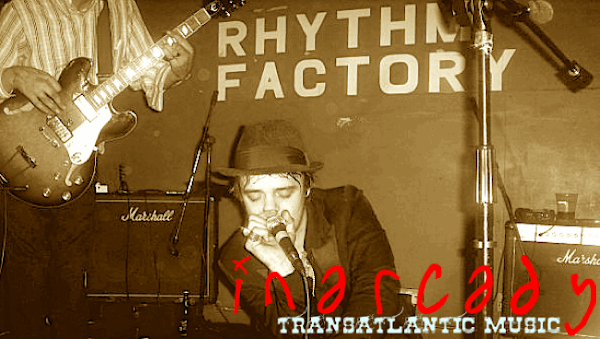Art Brut sagely advises, “Stop buying your albums from the supermarket,” and people have taken heed. In light of constantly dwindling album sales, I like reading the somewhat quaintly outdated US Neilson Soundscan chart. The thing about the chart that interests me most is what’s not selling - it reflects little about the music (predominantly rock and indie) that most people I know enjoy .
In fairness, my friends and I spend a lot of time on independent music websites; we’re not exactly the Lady Gaga fan club. But I assumed that Lady Gaga and her Top 40 contemporaries would dominate sales, so the country and rap albums that populate the top 20 surprise me, as does the lack of rock besides Nickelback and their abysmal sound-alikes. The sole entry that could even remotely (at this point, incredibly remotely) be termed indie in last week’s chart was Kings of Leon. Where is the music that my friends listen to? Hell, where is the music that my parents listen to?
Country is easy to understand; its audience skews older, making their conversion to digital music slower. And country fans are fiercely loyal to their favourite artists; purchasing an album is a sure way to support Carrie Underwood or George Strait (whose albums are certified 68x platinum - talk about loyalty).
Rap is harder to explain. Its fans are young, and considering the number of new rappers charting, it’s safe to say they don’t have much “brand loyalty”. My best guess is that music blogs just aren’t hosting the latest rap leak, so listeners access their music the old fashioned (or just legal) way. In an unscientific test, I searched high-charting rapper Fabolous and indie newcomers The XX on blog aggregator elbo.ws. The results? 236 hits for Fabolous, and 1256 for The XX, who released their debut in America just last week. Fans might want to get their music online, but the option just isn’t there to the same extent.
The obvious opposing question is: Why aren’t rock fans buying albums? I polled some friends and the feedback was universal: none of them buy CDs because the blog culture that ignores rap is a bounty of indie and rock. One said she hadn’t bought a physical album in “about five years” because access to music online is instant and expansive. These genres also aren’t charting because many albums are impossible to find for fans who are loyal enough to buy. A friend in northern California told me she’d been conducting a futile search for the new Maccabees CD. Online sales solve some of these problems, but I still find delayed release dates for international artists a frustrating issue. What about older fans? Some have gone really old school; I recently saw a friend’s father firing up a turntable for vintage rock records instead of CDs or an iPod. Others, like my parents, have become downloaders by proxy, snagging new music that I recommend.
Final question: why do more diverse albums chart in the UK? As I write, Arctic Monkey’s 'Humbug' is on track for number one. Part of the difference is attributable to the music culture; mainstream media focuses more on rock and indie, getting bands like Muse, White Lies, and Kings of Leon out from under the radar quickly and attracting fans who aren’t online specifically to sample new music. Another difference lies in record stores. Independents like Rough Trade stock albums that are hard to get in America, and even HMV has a selection that puts most US shops to shame. Fans like my Maccabees-seeking friend are more likely to support their favourite bands through album sales if albums are available.
So how can the American chart change? Honestly, I’m not sure. Better distribution, online and in stores, seems to be step one, but indie bands also have to win back ravenous music lovers who download for maximum exposure to new music. The silver lining? Rampant downloading creates hordes of new fans who come out to gigs. In fact, I’d love to see a gig chart. Maybe Nickelback wouldn’t be on it.
Friday, August 28, 2009
Subscribe to:
Post Comments (Atom)

No comments:
Post a Comment